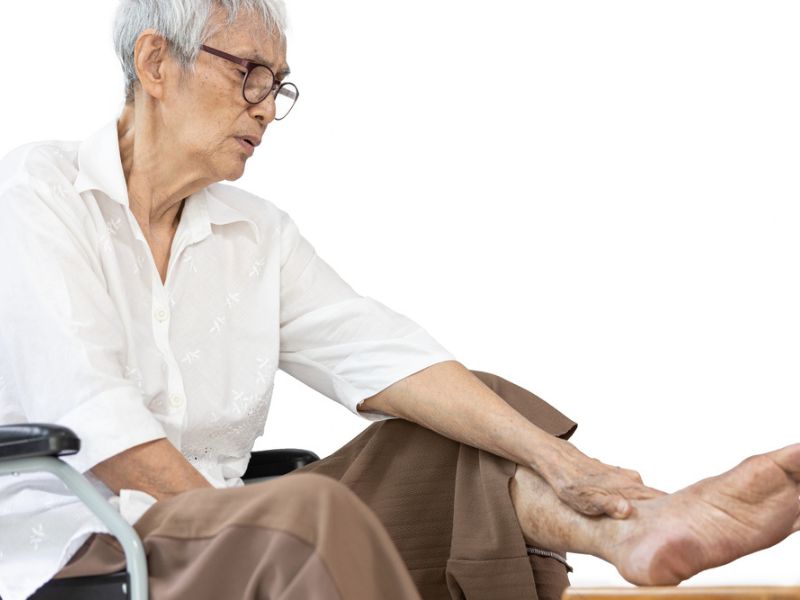After engaging in an activity, you suddenly feel numb, tingling, burning, or itching in your arm, hand, leg, or foot. The sensation that many people can relate to is commonly known as pins and needles. In the medical world, it is referred to as paresthesia.
When you experience pins and needles, you know they eventually go away by shifting your position or moving the affected part. What causes pins and needles? Let’s take a look.

Image Credit: Shutterstock/Geobor
What Causes Pins And Needles?
Dr. Laura Sander, the medical director, said, “Pins and needles commonly occur in the arms, hands, legs, and feet when sitting or sleeping on a body part that affects the nerve.” The sensation occurs when your leg “falls asleep,” for example.
Several factors can cause pins and needles, including nerve damage, medications, excessive alcohol consumption, and thyroid conditions.
How Can You Get Rid Of Pins And Needles?
Caudle says, “the pins and needles usually last for around a minute. Gentle movement may help the nerves get back on track. However, if the numbness and tingling persist, you may need to see a doctor.”
Zilliox says your treatment depends on the underlying cause of pins and needles. A doctor might also prescribe braces or nerve pain medications to treat the painful pins and needles sensations.

Image Credit: Shutterstock/CGN089
What Can You Do To Prevent It?
Sander suggests avoiding long periods of sitting or standing. She said, “Get up and move around.”
You should consult your doctor if you experience pins and needles due to an underlying condition. Zilliox emphasizes that you cannot prevent this from happening but can try to prevent it.
Is It A Sign Of Something More Serious?
In most cases, pins and needles aren’t signs of serious illness. “You should not be worried about pins and needles if it resolves after a few minutes and it does not happen frequently,” says Sander.
Sometimes, pins and needles signify serious health problems, such as multiple sclerosis, stroke, or Raynaud’s phenomenon. The doctor may examine you and suggest a treatment. She recommends seeing a health care provider if the numbness and tingling last for a long time or return frequently.